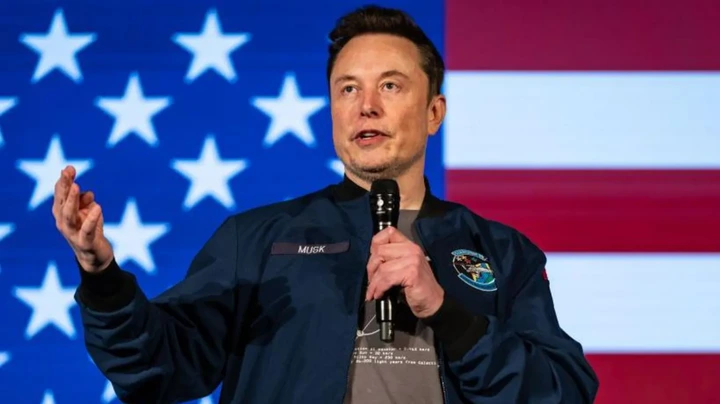
View pictures in App save up to 80% data.
TikTok has dismissed a report suggesting that China might permit the sale of the social media platform's US operations to Elon Musk as "sheer fantasy."
The company's remarks were made following a Bloomberg report indicating that Chinese authorities are considering a possibility that might lead to its American operations being sold to the wealthiest individual globally, should the US Supreme Court confirm a prohibition on the application.
The justices of the Supreme Court are expected to make a decision regarding a law that imposes a deadline of January 19 for TikTok to either divest its US operations or confront a potential ban in the nation.
TikTok has consistently stated that it has no intention of selling its operations in the United States.
"A spokesperson for TikTok stated to BBC News, 'It’s unreasonable for us to provide commentary on entirely fictional content.'"
According to a report from Bloomberg, which referenced sources with knowledge of the situation, one potential option being explored by Chinese authorities involves Musk's X social media platform assuming control over TikTok's operations in the United States.
Musk is a close associate of Donald Trump, the president-elect of the United States, who is scheduled to take office again on January 20th.
Last month, Trump called on the Supreme Court to postpone its ruling until he assumes office, allowing him the opportunity to pursue a "political resolution."
His attorney submitted a legal document to the court stating that Trump "is against the prohibition of TikTok" and "wants to address the current issues through political avenues once he assumes office."
This occurred one week following Trump's meeting with TikTok's CEO, Shou Zi Chew, at his Mar-a-Lago property in Florida.
The Biden administration has contended that if a sale does not occur, TikTok may be exploited by China for espionage and influencing political affairs.
The organization has consistently rejected claims of any interference from the Chinese Communist Party, asserting that the legislation aimed at prohibiting it in the United States infringes upon the First Amendment rights to free speech for its users.










